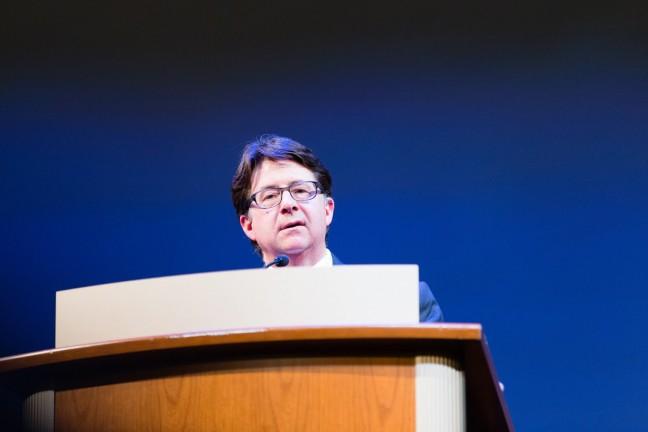The “pastoral setting” and “heart of America” ambience of “Making a Murderer” made it difficult to write Steven Avery’s wrongful conviction off as a narrow problem related only to large cities or race and ethnicity, defense attorney Dean Strang said.
Had Avery been a person of color and from an urban area, the Netflix docuseries probably would not have gotten the same reception, Strang said in an interview with The Badger Herald.
“I fear a swatch of the viewership would’ve dismissed this or minimized the story as ‘well, those are big city problems,’ or ‘well, now you’re talking to me about race,'” Strang said.
He told the Herald that while race did not play a role in the Avery case, it appears to make a difference in Dane County, which has the worst rates of minority confinements in the country, especially when looking at drug offenses.
In his lecture Tuesday as part of the Distinguished Lecture Series at University of Wisconsin, Strang discussed the current state of the criminal justice system in America. The “Making a Murderer” defense attorney emphasized the issue of racial disparities, citing it as one of the most urgent problems that not only Wisconsin faces, but the nation as a whole.
Racial disparities in arrest, conviction and sentencing all need to be addressed, Strang said. The second most urgent problem is Wisconsin has the lowest hourly rate for court appointed defense council in the country, Strang said.
In Wisconsin courts, the defense council is compensated $40 an hour, with an additional $25 an hour for traveling fees, Strang said. Since 1978, the hourly rate has only gone up $5, he said.
The state Legislature recently turned away a proposed bill that would’ve increased the compensation cap for the wrongfully convicted from $25,000 to $50,000 — a move Strang believes shows that “the Legislature doesn’t value the lost years of those lives.”
“[This ruling portrays] that innocence does not matter very much to us; we do not value the lives of the wrongfully convicted,” Strang said. “They are treated as the ‘other,’ and even when they are proven innocent and released, they are treated as outsiders.”
As a member on the Advisory Board of the Wisconsin Innocence Project, Strang worries the project will face challenges in upcoming years due to insufficient funding. The funds necessary to provide legitimate claims of innocence may leave potential cases waiting longer than the already three to seven-year waiting period.
While he may not be able to help everyone seeking to overturn a wrongful conviction, Strang aims to get his students thinking about what justice means in a structured, organized way by encouraging them to think through a humanities perspective.
“Often, the law school experience is dominated by the language of the social sciences, policy, incentives or behavior, cost-benefit analysis,” Strang said. “I encourage students to think from a humanities perspective about what justice means and our obligation to pursue justice in an organized, philosophical way.”
Strang said to move forward in Wisconsin, citizens should vote for judges who are “smart on crime,” rather than “hard on crime.”
People need to think about the outcomes in Wisconsin courtrooms, and the accuracy, fairness and decency of the process, he said.
“We can’t have confidence that we have a reliable criminal justice system that locks this many peoples up for as long as they do,” Strang said.


